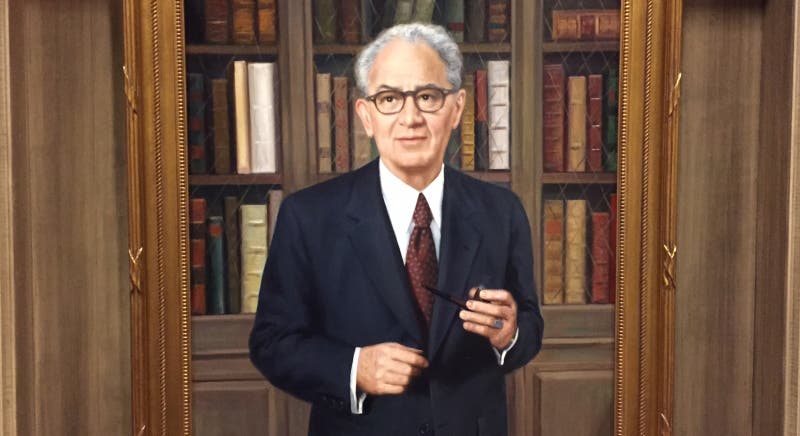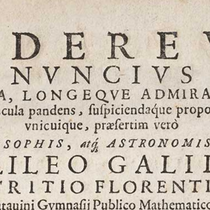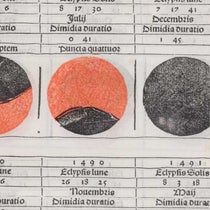Shipman Award Winners Come Together on Penguin Research Project
From opposite ends of metropolitan Kansas City, teacher Rebecca Groebe and student Andrea Dahl came together to work on a research project that has been presented with the Linda Hall Library’s Joseph C. Shipman Award at the 2017 Greater Kansas City Science & Engineering Fair.
Groebe teaches gifted science students at Heritage Middle School in Liberty, MO and Dahl is a senior at Olathe North High School. For about three years, the pair have formed an academic relationship that has led, among other things, to Andrea’s award-winning research project, “Formation and Change of Vocal Dialects in Captive Gentoo Penguin Pygoscelis papua Colonies.”
The impetus for the research project began at the opening of the Kansas City Zoo’s Penguin exhibit. Dahl overheard zoo keepers mention that two Gentoo penguin chicks were not thriving, possibly because of communication issues with their parents. From that chance encounter, Andrea formulated her research project, which studies duration, frequency, and loudness in the vocal behavior of Gentoo Penguins. Those vocalizations communicate individual recognition, mate bonding, parent-chick bonding, and other social bonds.
The zoo was interested in solving the problem and put Dahl in touch with Maureen Lynch, a researcher in the Antarctic from Stony Brook University, which is part of the State University of New York system located on Long Island. Dahl participated in a summer research project with Lynch at Stony Brook, and the pair collected and shared recorded Penguin dialects from across Antarctica, the recently introduced populations at the Kansas City Zoo and Detroit Zoo, and an established Gentoo population at the Central Park Zoo.
Dahl and Groebe each receive $500 in prize money from the Shipman Award, which is named after the first director of the Linda Hall Library of Science, Engineering & Technology. Each year, to honor Mr. Shipman's legacy of devotion to science, the Library recognizes a student whose mastery of scientific writing is demonstrated in a paper or science project.
Tania Munz, the Library’s Vice President for Research and Scholarship, recommended Andrea’s project for the Shipman Award. She recognized the project’s excellence from start to finish.
“Andrea’s research was a beautifully conceived study, and it was highly original,” Munz said. “In the entire science fair, there was nothing else like it.”
As Dahl collected the Penguin dialects, she met Groebe at an International Science Fair Competition. The pair discussed their work, and realized that working together would be a good fit, as Groebe leads a Penguin project with her gifted middle school students. Dahl was looking for a mentor to help her with her research project, and Groebe seemed like a good fit. Dahl was impressed with how much time Groebe spent helping her students.
“Ms. Groebe brought in a big-picture aspect to the research,” Dahl said. “She helped me find ways around the obstacles and she was able to find resources to help me.”
The project forced Dahl to take it upon herself to develop new skills. Groebe suggested that Andrea use analytical software to collect data. Just one problem, though, Dahl had never programmed statistical software before, so she took an online course to learn how to program R Statistical Software. Groebe says it is just one of the things that she admires about Dahl.
“She asks higher level questions than most people her age, and she typically sees more in her observations than most people,” Groebe said. “On top of that, she has a natural curiosity and a great work ethic.”
Dahl discovered that Penguin dialects change over time within the same zoo and that penguins at different zoos adopted specific dialects within their population. She also discovered that dialects change as Antarctic penguins travel in search of krill, their main food source. The travel is necessitated by climate change and melting in the Antarctic.
Dahl’s research determined that exhibit acoustics at the Kansas City Zoo caused certain penguin dialect frequencies to be drowned out, which may have impeded the chicks’ ability to thrive. Eventually, Dahl wants to help design penguin exhibits to be a more acoustically natural environment.
Before that, there is college, and Dahl has put off her final decision almost to the deadline. Right now, she has narrowed her choices down to Stanford and Harvard. She plans to study computational biology, which combines her passion for biology and data science, which she demonstrated in her project.
Of course, either of those universities will put Dahl further away from Groebe, but Dahl believes the relationship with her mentor will endure geography. She already talks to Groebe’s classes about the penguin project, climate change, and how to get involved in science. She plans to continue that in some form no matter where she goes to school in the fall.
“Too many students get turned off by science as they get older. I want them to see how interesting it is and get them involved early on,” she said. “We need more young people doing data science, especially girls.”






